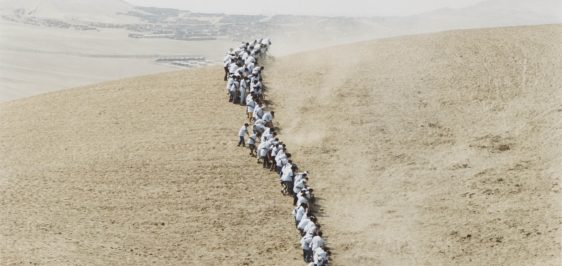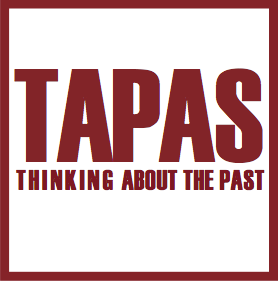
TAPAS Reading Group Series 2021
This reading group series explores how people have thought theoretically about the relationship between (doing) history and responsibility. A few decades after the so-called ‘memory boom’, the wide-spread assumptions that engaging with the past can potentially enforce justice have found lots of skepticism among historians and other scholars. In memory studies, the ideal of “moral remembrance” — “a standardized set of norms, promoted through the human rights infrastructures of world polity, in which societies are supposed to deal with the legacies of mass human rights abuses” — has been severely attacked (David 2020). Scholars have, for example, pointed out how remembering dark pasts does not automatically lead to an enlightened “good citizenship” or increased respect for other cultures, and how it at times even produces an entirely opposite attitude (Gensburger and Lefranc 2020). Historians have therefore come to realize that engagement with the past does not inherently serve justice (Minow 199; Torpey 2001). Older critiques of historians’ blind belief in progress and their teleological concept of historical time have also unsettled the idea that historians and/or history itself can be the agents of “history’s judgment”.
At the same time, many theorists of history have refused to give up entirely on the idea that history connects to ethical responsibility (Tomba 2019; Scott 2020). If our relationship to history is to be solely cognitive and if there is not even a weak moral motive hidden in our engagements with the past, why bother studying history? Deep down, policymakers and professional historians, too, continue to believe that engaging with history leads people to feel ethically responsible for both past and present wrongs: that either practicing history can cause responsible behavior, or that engaging with the past urges us to feel responsibilities towards history. This reading group series will explore such gut-feelings theoretically: (how) are we responsible to history? We explore how scholars have thought about ‘historical responsibility’ and its difference with guilt, whether there is something we ‘owe’ to history and to the dead, how people have thought about ‘intergenerational’ responsibility, what ways of remembering and forgetting help us take responsibility to ‘prevent’ the past from repeating itself, and finally, what the limits of historical responsibility are. We take a look at both recent and older theorizing about the relation between history and ethical responsibility. While our approach is decisively theoretical, we strive to always connect more abstract understandings of the relationship between history and responsibility to concrete present concerns, such climate justice or colonial legacies and structural inequalities.
PRACTICAL INFO AND CONTACT
Researchers and students interested in joining our reading group series can inscribe by sending an e-mail to tapas@ugent.be. As usual, TAPAS reading groups are informal and we welcome all interested colleagues and students to join the discussion. We will share all literature beforehand and will organize all sessions online in ZOOM.
PROGRAM
Friday April 2, 2021 | 13h30 – 15h
What is collective responsibility/guilt?
- Arendt, Hannah. “Organized Guilt and Universal Responsibility (1945).” In: Arendt, Hannah & Baehr, Peter (ed.). The Portable Hannah Arendt. Penguin Books, 2003, 146–156.
- Young, Iris Marion. “CH 3: Guilt versus Responsibility: A Reading and Partial Critique of Hannah Arendt.” In: Young, Iris Marion. Responsibility for Justice. Oxford University Press, 2010.
- Gilbert, Margaret. “CH 8: The idea of Collective Guilt”, In: Gilbert, Margaret. Sociality and Responsibility: New Essays in Plural Subject Theory. Rowman & Littlefield Publishers, 2000.
Friday April 23, 2021 | 14h – 15h30
What is trans/intergenerational responsibility? PART 1
- Young, Iris Marion. “CH 7: Responsibility and Historic Injustice.” In: Young, Iris Marion Responsibility for Justice. Oxford University Press, 2010.
- Thompson, Janna. “Collective Responsibility for Historic Injustices.” In: Midwest Studies in Philosophy 30, no. 1 (2006): 154–167.
Friday May 7, 2021 | 14h – 15h30
What is trans/intergenerational responsibility? PART 2
- Booth, W. James. “CH1:Justice between Past and Present” and “CH2: Is the Past a Foreign Country?” In: Booth, W. James. Memory, Historic Injustice, and Responsibility. Routledge, 2019.
- Meyer, Lukas H. “Intergenerational Justice.” In: The Stanford Encyclopedia. 2003 (with 2015 revision). In: <https://plato.stanford.edu/entries/justice-intergenerational/>
Friday May 28, 2021 | 14h – 15h-30
Do we have a duty to remember?
- Margalit, Avishai. The Ethics of Memory. Harvard University Press, 2004.
- Pensky, Max. “Solidarity with the Past and the Work of Translation: Reflections on Memory Politics and the Postsecular.” In: Calhoun, Graig ed. Habermas and Religion. Polity Press, 2013.
Friday June 11, 2021 | 14h – 15h30
Historical justice and the question of nationalism vs. cosmopolitanism
- Miller, David. “CH 6. Inheriting responsibilities.” In: Miller, David. National Responsibility and Global Justice. Oxford University Press, 2007.
- Habermas, Jürgen. “Historical Consciousness and Post-Traditional Identity.” In: Acta Sociologica 31, no. 1 (1988): 3–13.
Friday June 25, 2021 | 14h-15h30
Can forgetting enhance historical justice?
- Nandy, Ashis. “History’s Forgotten Doubles.” In: History and Theory 34, no. 2 (1995): 44–66.
- Assman, Aleida. “Forms of Forgetting.” Lecture given on October 1, 2014 for the Royal Dutch Academy of Sciences.
Friday November 5, 2021 | 12h30 – 14h00
How to understand historical responsibility in relation to ecological debt?
- Chakrabarty, Dipesh. “The climate of history: Four theses.” In: Critical Theory 35, no. 2 (2009): 197–222.
- Meyer, Lukas H. “Introduction: On the significance of historical emissions for climate ethics.” In: Meyer, Lukas H. and Sanklecha, Pranay. Climate Justice and Historical Emissions. Cambridge University Press, 2017.
Friday November 19, 2021 | 12h30 – 14h00
What are the limits of historical responsibility?
- Bevernage, Berber. “The Past is Evil/Evil is Past. On Retrospective Politics, Philosophy of History and Temporal Manichaeism.” In: History and Theory 54, no. 3(2015): 333-352.
- Waldron, Jeremy. “Superseding Historic Injustice.” In: Ethics 103, no. 1 (1992): 4–28.
ORGANIZING COMMITTEE
Prof. Dr. Berber Bevernage (TAPAS, INTH): Professor at the Department of History, Ghent University
Drs. Walderez Ramalho (TAPAS, INTH): PhD Student at the Universidade Federal de Ouro Preto
Dra. Marie-Gabrielle Verbergt (TAPAS, INTH): PhD Student at the Department of History, Ghent University
Dra. Eline Mestdagh (TAPAS, INTH): PhD Student at the Department of History, Ghent University
